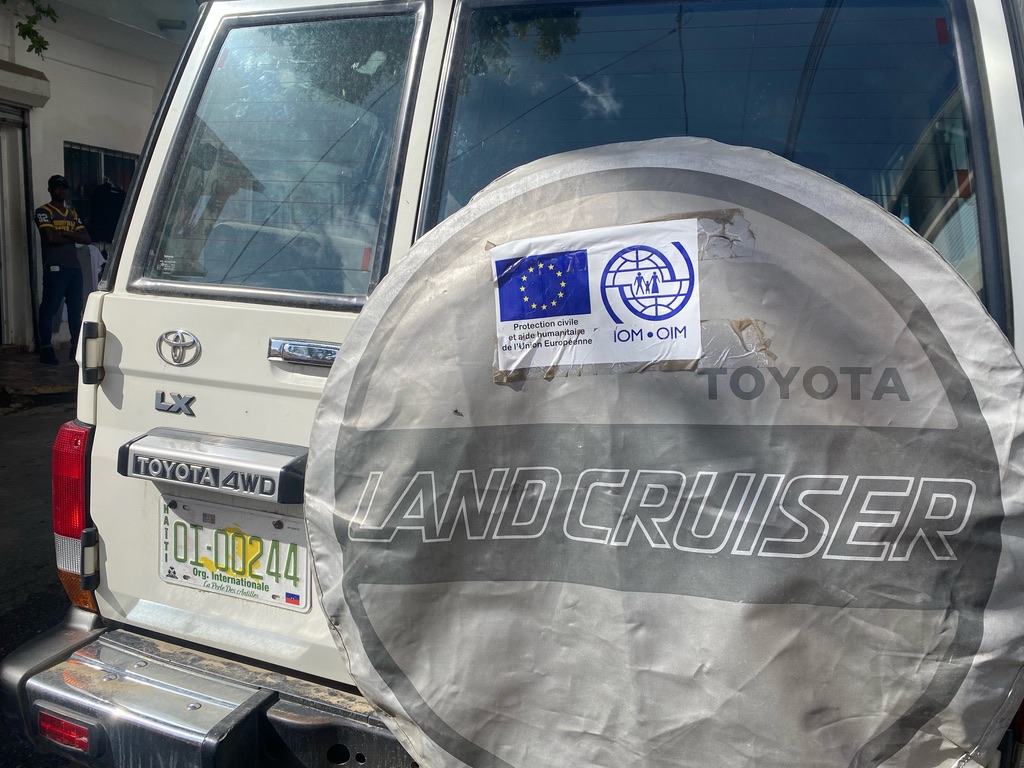An Emergency Mission to the Dominican Republic 🇩🇴

Dajabon (border with Haiti) Dominican Republic, December 2022
In December 2022, I traveled to the Dominican Republic for humanitarian work, specifically to support our UNHCR partners in dealing with the ongoing refugee crisis caused by the Haitian migration into the Dominican Republic. This humanitarian situation has become increasingly dire due to the political instability, economic hardship, and violent unrest in Haiti, which has forced many Haitians to seek refuge in neighbouring countries.
Santo Domingo – Coordination and Meetings
My trip began in Santo Domingo, where I had several meetings with UN colleagues, humanitarian partners, and the EU Delegation to assess the situation and discuss strategies for providing assistance. The Dominican Republic has been the primary host country for Haitian refugees, and humanitarian organisations, including the UNHCR, are working tirelessly to coordinate efforts and ensure that refugees receive the support they need.
The refugee crisis has placed significant strain on the Dominican Republic’s resources, and agencies have had to develop strategies to address issues such as:
• Access to basic services like healthcare, shelter, food, and education.
• Legal and social integration of refugees who face xenophobia and discrimination in certain areas.
• Ensuring safety and protection for those at risk, especially women and children.
• Addressing border tensions, particularly in the north-western border region where many refugees cross into the Dominican Republic.
Challenges Faced by Humanitarian Organisations
Despite the challenges, the humanitarian organisations have been resilient in their response to the crisis:
• UNHCR has focused on providing protection services and has worked with local governments and other NGOs to ensure safe spaces for refugees, especially for vulnerable groups.
• Local and international NGOs have been essential in providing emergency relief, including food distribution, healthcare, and temporary shelter.
• Efforts to provide legal support have also been critical to ensure that refugees can access work permits, legal documentation, and other necessary services.
Traveling Outside the Capital – Hato del Medio Arriba and Dajabon
After the meetings in Santo Domingo, I traveled to the north-western region of the country to visit areas more directly impacted by the refugee crisis.
• Hato del Medio Arriba – A rural area where many refugees settle in makeshift shelters. I observed the challenges of accessing basic resources in these areas, where local communities and refugees struggle to survive.
• Dajabon – A town located near the Haitian border. Here, I witnessed the humanitarian efforts firsthand. The border area has become a critical point of entry for many Haitian refugees, and local NGOs and international organisations work closely to provide immediate assistance to people as they cross.
The Humanitarian Response in Action
The situation in these regions is difficult, but it was inspiring to see the efforts of humanitarian organisations working together to address the crisis. I saw firsthand the impact of coordinated relief efforts, especially in areas like Dajabon, where refugees were provided with food aid, temporary shelters, and medical care. It was clear that despite the scale of the crisis, collaboration between local communities, government authorities, and NGOs was essential to ensure that basic needs were met and refugees could receive life-saving assistance.
Reflections on the Crisis and Humanitarian Work
The Haitian refugee crisis in the Dominican Republic is a complex humanitarian emergency that continues to evolve, but the resilience and dedication of humanitarian workers are truly inspiring. While challenges remain, humanitarian organisations are making a significant difference in the lives of thousands of refugees, offering hope and support in a time of great need.
Click here to access the album.
